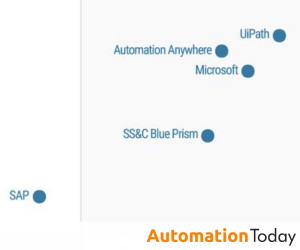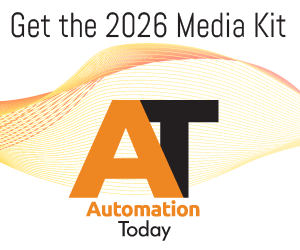
Even as RPA has been joined by other types of solutions to comprise an optimal mix for the purpose of end-to-end business process automation, it has remained a core technology as businesses continue to search for ways to wring more efficiency out of their operations. In its annual evaluation of top providers in the RPA space, global IT consultancy Gartner has named Automation Anywhere, Microsoft, SS&C Blue Prism and UiPath as “leaders.”
“Magic Quadrants,” which Gartner produces for dozens of technology sectors, use a proprietary analysis to place industry vendors in a graph that plots “ability to execute” on one axis and “completeness of vision” on the other. While Gartner has ranked up to 20 providers in past editions of the RPA Magic Quadrant, there are 13 on the list this year.
As the report noted last year, AI, generative AI and the LLMs that underpin that tech are being integrated with RPA into intelligent automation solutions. In the short term, according to this year’s report, that is resulting in RPA platforms that are featuring “improved self-healing capabilities, script remediation and IDP extraction accuracy.”
Stamford, Conn.-based Gartner also acknowledged that players in the RPA space are betting heavily on generative AI to make it easier for businesses to develop automations.
“Most vendors have focused on creating prompt-based development features that translate natural language requests into automation workflows,” the report’s authors wrote. “This makes automation development less technical and more broadly accessible to citizen developers in an organization.”
The consultant warns, however, that it has not yet resulted in the ability to build end-to-end automations for complex workflows.
In addition to the “leaders,” Gartner included 9 other RPA providers in its analysis: Appian, IBM, Laiye, Nintex, Pegasystems, Samsung SDS, Salesforce, SAP and ServiceNow.


